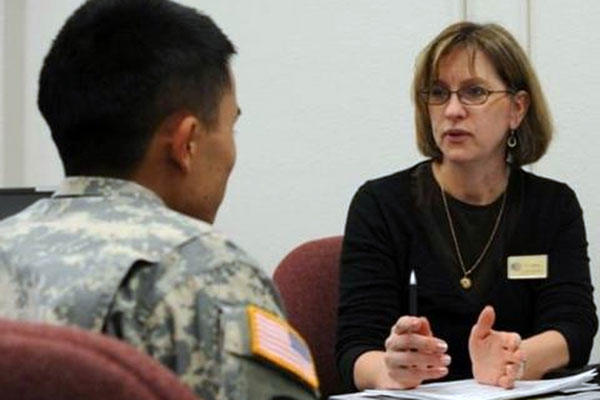Since 80% of new jobs come through a personal connection, a strong personal brand, networking and mentoring are critical for today's job seeker. I recently caught up with Diana Tsai, co-founder and CEO of Veterati, a digital membership platform that is revolutionizing the job-seeking process, to get her insight on the power of mentoring for the military-to-civilian transition.
Lida Citroen: What are the benefits of mentoring?
Diana Tsai: "Anyone benefits from mentoring, especially those who are in a state of transition, whether that's transition from military to civilian career, or stay-at-home mom to back in the workforce, or college to first job.
"Mentors help us explore ideas and options, providing insights and resources from their experiences and their own network. They offer another perspective and point of view on choices we make, people we connect with and ideas we might pursue."
LC: Why do veterans need mentoring?
DT: "The transition from a military to civilian workforce is one that is difficult to understand by most Americans who have never even spoken with a veteran. One of our veterans describes it as 'the single-most difficult transition. You're transitioning not from one industry to another, but literally from one culture -- one ecosystem -- to an entirely different world.'
"During these transitions, mentors can serve as guides, sharing expertise and networks to triangulate veterans into the careers they may or may not know they're looking for."
LC: What should veterans expect from mentoring with a corporate professional?
DT: "Veterans should expect an authentic conversation with someone committed to helping them move forward to achieve success. They will also get out of it what they put in. Mentees who come into the mentoring relationship with an idea of what success looks like for them, and who can articulate the challenges that block their success, have a more productive conversation with a mentor.
"Mentees should expect candid, respectful feedback on their situation, and the unique perspective the mentor has on how to move forward."
LC: How many mentors should a mentee have?
DT: "We recommend speaking with several mentors to eliminate blind spots and gain a well-rounded perspective. Mentees should start seeing results/job offers after 5-7 conversations with different mentors, while some mentees treat the platform of mentors as an ecosystem to build interviewing skills and confidence, booking up to 25 conversations with different mentors."
LC: In 2015, you co-founded Veterati. What is Veterati?
DT: "Veterati removes the bottleneck that exists in other mentoring programs by democratizing the mentorship experience. For mentees, we put the power in their hands to choose as many mentors as they want, from any industry, from peers all the way to CEOs. For mentors, we offer a streamlined mobile technology to eliminate the inconvenience that previously existed with being a mentor, and increase measurable results.
"As you look to build and gather the tools you'll need to successfully transition out of uniform, don't underestimate the power of a strong network of contacts who can help you gain information, contacts and insights into careers, companies and opportunities."
Find the Right Veteran Job
Whether you want to polish your resume, find veteran job fairs in your area or connect with employers looking to hire veterans, Military.com can help. Subscribe to Military.com to have job postings, guides and advice, and more delivered directly to your inbox.












